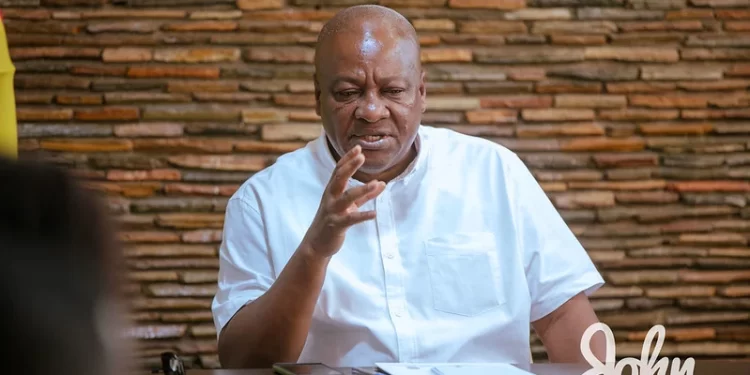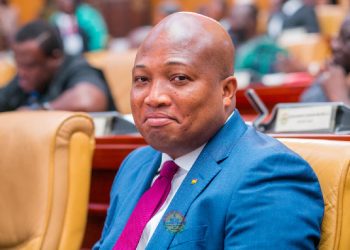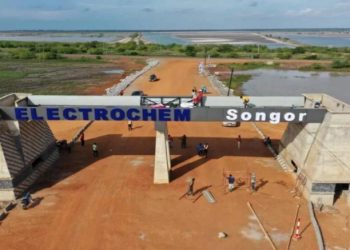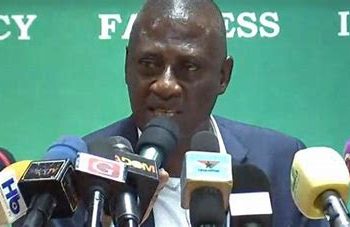Flagbearer of the National Democratic Congress (NDC) John Dramani Mahama has criticized Energy Minister, Matthew Opoku Prempeh, over his dismissive response to demands for a load-shedding timetable amidst the recent power outages in Ghana.
Dr. Opoku Prempeh in an earlier interview, dismissed calls for the issuance of a load-shedding timetable by the Electricity Company of Ghana (ECG) and asked Ghanaians to issue their timetable.
Addressing members of the Association of Ghana Industries (AGI) during a stakeholder engagement, Mr Mahama described the minister’s comment as disrespectful and urged the government to address the country’s power crisis promptly.
He emphasized the need for a responsible government to provide a schedule to enable citizens to plan amidst the erratic power situation.
“The country has been plunged into darkness. Mismanagement about generating assets and colateralization of ESLA which was meant to provide the resources to finance current and legacy debt has led us back to dumsor. The best government can do is to eat a humble pie, take responsibility for the problem and work to address it. Unfortunately, that is not the case. I’m aware that businesses and households cannot plan because of the erratic power situation.
“While citizens demand a schedule to enable them to plan which is the least the responsible government should be doing, Energy Minister, Dr Matthew Opoku Prempeh, who was one of the frontline participants of the ‘Dumsor must stop campaign’, while in opposition is reported to have said, those asking for a load-shedding timetable wish ill for the country and they should publish their schedule.
“This is most disrespectful to Ghanaians and the customers of electric power. There is absolutely no doubt that businesses strive in a stable macroeconomic environment where revenue measures are designed to motivate the local production for growth and fiscal consolidation.”
Meanwhile, the President of the AGI, Dr Humphrey Ayi-Darke, proposed the adoption of nuclear energy as a means to tackle the power crisis.
He acknowledged that the cost of starting a nuclear power project is high but believes that it is the trend in the developing world and could help reduce power costs and increase competitiveness in manufacturing.
“So on the subject matter of power, we have been engaged and have been informed in the nuclear power agenda. One will say it’s pretty expensive to start a nuclear power project, an average of six billion and above, which will take more than five years possibly to build.
“Nonetheless, medium to long term in the developing world in the ancient state that is the trend, that is the only mix we believe can drop the cost of power and make us competitive in this space of manufacturing. Further details can be discussed later. Our second matter has to do with the macro indicators.”
—————-
Explore the world of impactful news with CitiNewsroom on WhatsApp!
Click on the link to join the Citi Newsroom channel for curated, meaningful stories tailored just for YOU: https://whatsapp.com/channel/0029VaCYzPRAYlUPudDDe53x
No spams, just the stories that truly matter! #StayInformed #CitiNewsroom #CNRDigital















